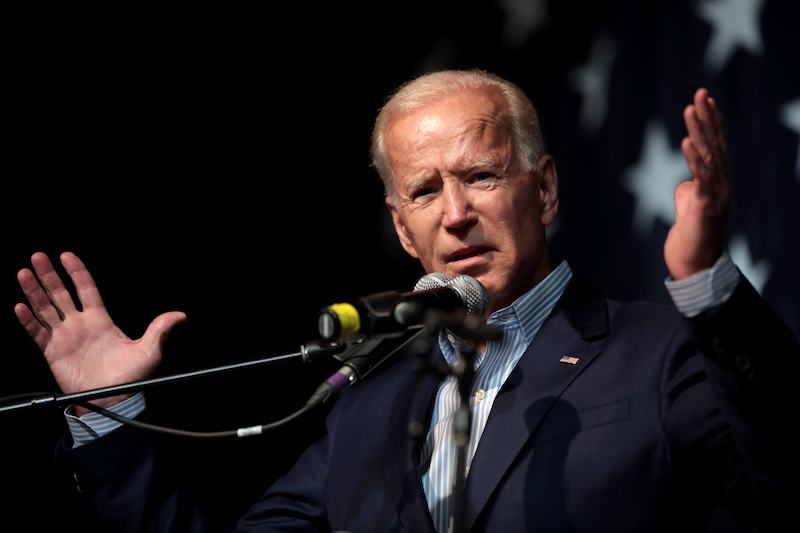Biden Pushes G20 Energy Producing Countries to Boost Production
ROME (Reuters) — U.S. President Joe Biden on Saturday urged major G20 energy producing countries with spare capacity to boost production to ensure a stronger global economic recovery as part of a broad effort to pressure OPEC and its partners to increase oil supply.

With oil and gas prices surging, some energy-producing countries such as Russia and Saudi Arabia have not boosted output enough to satisfy countries that are largely energy consumers and worry about energy shortages and inflation.
French President Emmanuel Macron echoed those concerns in an interview with the Financial Times, urging the summit to push for better "visibility and stability on prices" to avoid undermining the post-pandemic global economic recovery.
Rocketing natural gas prices, with the European benchmark up almost 600% this year, have been fueled by low inventories and surging demand.
A senior U.S. administration official said after the G20 session that energy consumer nations had started to discuss what they can do if OPEC and its partners do not do more.
"We have to be able to talk privately with partners to think about what tools we have available to us to deal with this in the event that OPEC-plus doesn't step up and increase production," the official told reporters in Rome.
Russia, a major natural gas supplier to Europe, and its energy giant Gazprom are being urged to do more to ease prices in the spot market.
"It's a delicate time in the global economy, and what's important is that global energy supplies keep up with global energy demand," another senior Biden administration official said before the meeting. "There are major energy producers that have spare capacity, and we're encouraging them to use it to ensure a stronger, more sustainable recovery across the world."
That official said G20 leaders would not specifically target the Organization of the Petroleum Exporting Countries (OPEC), which includes Saudi Arabia, or set any targets for energy production.
Russian President Vladimir Putin did not come to Rome for the summit.
Comments from Russian Deputy Prime Minister Alexander Novak earlier this month sparked fresh tensions over the Nord Stream 2 undersea gas pipeline from Russia to Germany, which Washington has long opposed, and which is now awaiting clearance from a German regulator.
Novak said clearing the pipeline could help ease shortfalls, sparking concerns that Russia has failed to boost its production of gas - currently delivered via land-based pipelines - precisely to put pressure on Europe to approve Nord Stream 2.
Related News
Related News

- Keystone Oil Pipeline Resumes Operations After Temporary Shutdown
- Freeport LNG Plant Runs Near Zero Consumption for Fifth Day
- Biden Administration Buys Oil for Emergency Reserve Above Target Price
- Mexico Seizes Air Liquide's Hydrogen Plant at Pemex Refinery
- Enbridge to Invest $500 Million in Pipeline Assets, Including Expansion of 850-Mile Gray Oak Pipeline
- Enbridge Receives Approval to Begin Service on Louisiana Venice Gas Pipeline Project
- U.S. to Acquire 3 Million Barrels of Oil for Emergency Reserve in September
- AG&P LNG Acquires 49% Stake in Vietnam's Cai Mep LNG Terminal
- BP's Carbon Emissions Increase in 2023, Ending Decline Since 2019
- Texas Sues EPA Over Methane Emission Rules for Oil and Gas Sector




Comments